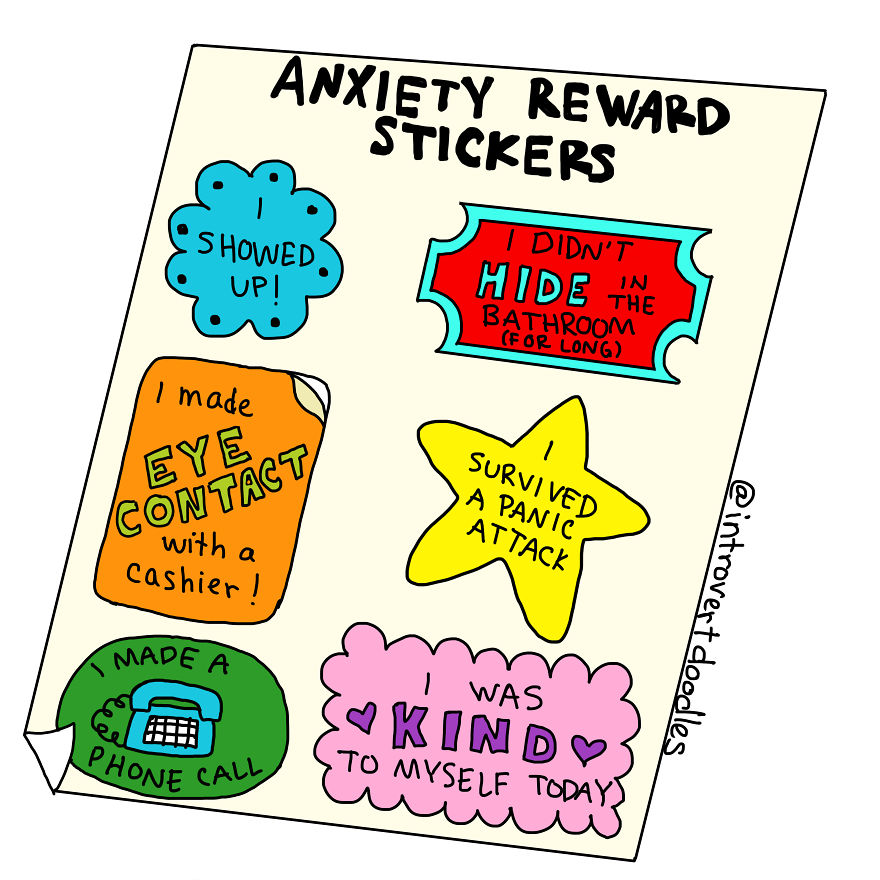As a young adult who has struggled with anxiety personally, I’d like to share with you some way you can effectively help your teen with anxiety. First and foremost, parental support and assistance at all times were crucial to my recovery from severe episodes of anxiety. That constant fear of experiencing another anxiety attack was always present, but the even greater fear was undergoing the attacks when it was least convenient. In other words, we can conclude that I doubled the intensity of my anxiety but getting anxious about anxiety. Because of this, I felt an underlying need to accompany a parent during every hour of the day. As you can imagine, living in the adolescent years, this was extremely difficult for me, as well as my parents, for parental supervision is expected to decline in intervals, due to the teenager’s request and maturing. This posed a threat to my social life, confidence, reliance, and well-being.
 Possible parental response when dealing with your teenager’s anxiety;
Possible parental response when dealing with your teenager’s anxiety;
The ideal word to describe my parent’s reactions to my anxiety was confusion. They were confused as to how I could be experiencing such devastating emotions of distress when everything in our lives was stable and considered “okay.” This is an expected response, especially if you are unfamiliar with mental illness or have never dealt with similar experiences during your own teenage years. The words and wavering emotions you may possibly witness in your teenager can be frightening, which can lead to self-questioning of, “What did I do wrong as a parent?” and “Did I fail my child?”
It is important to remind yourself that you have done nothing wrong. In a way, my parents were ashamed to admit to my behaviors aloud and discuss my problems amongst family members. For example, It’s not an everyday occurrence that you hear a parent remark, “Sarah will come over after her appointment with her psychologist,” or “Sarah will be receiving treatment for a week in a psychiatric center for severe anxiety.” Such a statement is abnormal to hear among our friends and family- not exactly coffee table chitchat! This type of casual yet accepting talk of mental health is still stigmatized to be an unusual circumstance- as if 1 in 4 of us don’t struggle with a diagnosable mental health disorder (National Institutes of Mental Health). If more adults, especially parents, are able to normalize the discussion concerning mental health, it would relieve much unnecessary worry for them, as well as their teenagers.
Comforting parental support for teenagers with anxiety;
From the support of my psychiatrist and psychologist, my parents learned to adjust their initial responses to my anxiety attacks and anxious moments throughout the day. Instead of the usual response of, “You are okay, Sarah,” their reaction shifted to, “What is causing you to feel anxious? Is there anything we can do to decrease your feelings of anxiety?”
Although a simple adjustment, this alteration in tone and perspective accelerated my progression in recovery. I no longer felt that my emotions were dismissed, but rather my parents were inquiring about my anxiety in a way they had never approached before. This was progress, by itself.
Our communication throughout the day improved and they made themselves more accessible when I really needed them. My parents and I used code words with one another to use during phone calls to reference that I was either having an anxiety attack in school or when out with friends. The code words would also serve as “alerts” as to when I would wish for my parents to pick me up. These became really useful when my panic attacks would be too severe to remain in public. The relief of knowing that my parents were easily accessible and sensitive to my needs settled my feelings of loneliness.
Despite being alert at all times, my parents had to acknowledge more signs of my anxiety than they previously had. They soon learned what facial expressions I would unconsciously be forming when undergoing an anxiety attack. My cheeks changing from a bright red to a pale white indicated that my anxiety was choking me, as I suffered from feelings of suffocation. Instead of dismissing these physical signs due to lack of knowledge regarding anxiety, my parents now understood the lengths of anxiety and the distraught it brought to my well being.
If you’re a parent struggling to figure out how to communicate with your teen, start by educated yourself on their specific symptoms. The more you know, the more compassion you can have during hard times and recognize the signs of an anxiety attack before they arise.
By: Sarah O’Leary, Anxiety In Teens Contributor